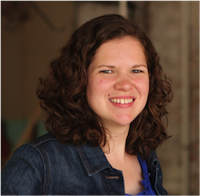Social Media and Breaking News
The news industry has always been competitive, but the competition is fiercer than ever before.
We have faced a number of tragedies over the last year: the school shooting in Newtown, Connecticut, the bombings at the Boston Marathon and the manhunt for the Tsarnaev brothers that followed, and the shooting at Washington D.C.’s Navy Yard. In each instance, news has broken on social media, and the real-time reporting caused much confusion and misinformation.
 A Washington Post article, “When news breaks, scanners and social media can create a cloud of errors for news outlets,” discussed the false information reported as events in D.C. unfolded on September 17, 2013. The article explained that breaking news we often learn about on social media is information journalists hear on police scanners as the events are playing out. The issue with this is that police scanners are not accurate sources.
A Washington Post article, “When news breaks, scanners and social media can create a cloud of errors for news outlets,” discussed the false information reported as events in D.C. unfolded on September 17, 2013. The article explained that breaking news we often learn about on social media is information journalists hear on police scanners as the events are playing out. The issue with this is that police scanners are not accurate sources.
Dave Statter, a veteran TV news reporter who runs Statter911.com, told the Washington Post, “We’ve gotten into a situation where the media’s standard operating procedure has become report first, confirm second, and correct third.” Now, journalists and newscasters are under significantly more pressure to break the news first, compared to the way communication may have occurred before social media and mobile devices came into the picture. Journalists are working hard to break the news before fellow journalists, as well as another competitor that has arisen thanks to social media: the “citizen journalist.”
A “citizen journalist” is a pedestrian who sees a major event occur and breaks the news using social media. As the events at the Boston Marathon unfolded last April, many people tweeted updates and photos, essentially beating journalists to the punch.
Journalists have become focused on the fast-paced news industry and the need to share what they know first, when what they should really be focusing on is clarity. The difference between “citizen journalists” and real journalists is real journalists, particularly the ones who work for big-name newspapers and broadcasting companies, are sources that most people will look to for accurate information about major events. As consumers, we rely on journalists to give us accurate content because that is what we look to them for: Answers. By reporting misinformation, large news corporations risk confusing their consumers, as well as potentially losing their credibility.
Subscribe to our blog to receive via email.

























